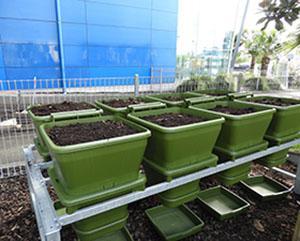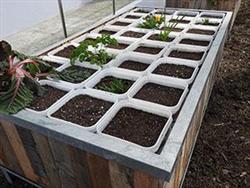- 09 August 2018
Going full circle with worm farms
Mainfreight has a 100-year vision. All decisions are made on the basis that we will be here for another 100 years. To do so, we are always actively looking to reduce our environmental and economic impact of our operations where we can. We are constantly changing the way we do things on the road, in our branches and across the globe.
We implement simple initiatives such as recycling office and depot waste, using grey water for our onsite truck washes, designing our buildings with sustainability and environmental principles in mind including installing solar panels in our new depots and gradually changing our fleet of company vehicles to hybrid and fully electric cars.
Making our waste work for us
Research shows, 1.3 billion tonnes of waste are generated each year and 33% of food produced is wasted globally. We believe there is a better way of reducing food waste that goes to the landfill. We are now using worm farms to produce a rich fertiliser to be used in our own herbs and vegetable gardens. The herbs and vegetables produced are then be put back in our cafeteria to feed our hungry team.
The worms convert organic waste into worm castings and a nutrient-rich liquid, which are both high-quality fertilisers. The liquid drains freely from the bin and into a tray placed below it. The worms self-populate to their environment, so each bin will end up having the right quantity of worms that should not need replacing. There is approximately 2,000 live worms per bin, however once the population is up to speed there can be up to 12,000 worms per bin. These aren’t your common “garden worms”, but are “compost worms”, so it’s important to understand what can and cannot go in the worm farm.
Our first worm farm operation is set up at our Railway Lane site in Auckland with plans to scale it to a bigger operation. It is certainly a win-win situation, we are reducing food waste and in return producing a product that helps in growing our own nutritious vegetables!
Find out more about our commitment to reducing our environmental impact, visit our sustainability page.
